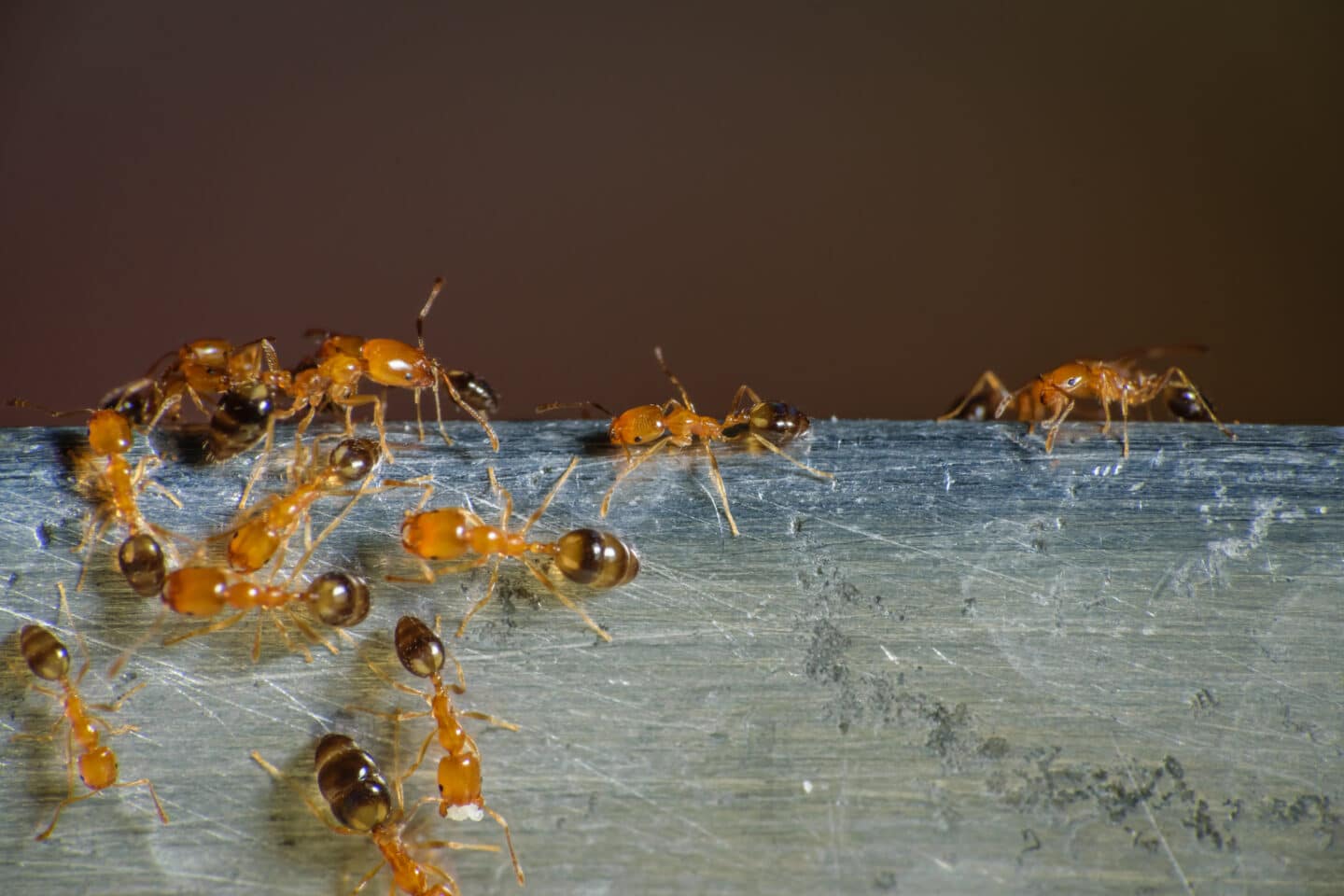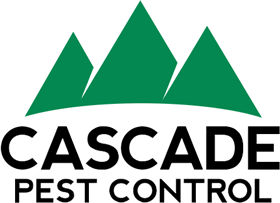Author: Kurt Treftz, Cascade Pest Control
You don’t invite ants to your picnic, so you certainly don’t want them in your home. However, ants seem to be able to creep up anywhere. If you have an ant problem, it can help to know what kind of ant you are facing so you can better combat them. One very notorious little critter is the pharaoh ant.

Its name possibly arises from its plague-like qualities – as its sheer numbers and invasiveness can be overwhelming. While the pharaoh ant origins might be from Africa, it is now a worldwide pest.
Identifying Pharaoh Ants
Appearance:
Pharaoh ants are tiny, 2mm long insects in a light yellow to red shade. They have darker abdomens and appear somewhat translucent. Their antenna has a three-segmented club, which sets them apart from their close twin, the thief ant, which has a two-segmented club. The queen can reach up to 4mm in length.
Habits:
Pharoah ants reproduce rapidly (38 days from egg to adult) and create new colonies by “budding.” Numerous daughter nests can be formed when a queen and a few workers break off from the mother. Queens are developed quickly from the brood if necessary. In a large colony, there are a number of reproductive females. Mating occurs in the nest, so there is no swarming season to alert people to the presence of pharaoh ants. Only about 5% of the colony is out foraging at any one time, so they can be challenging to find and eradicate.
Diet:
Pharaoh ants are pretty opportunistic eaters and will feed on just about anything. They prefer sweet, fatty, or oily foods, making your kitchen and pantry an appealing target.
Habitats:
Pharaoh ants prefer warm, inaccessible, humid areas to make their nests. Buildings, wall voids, and sheltered spaces are most common. Although they may nest year-round in tropical climates, pharaoh ants in most of North America only survive by overwintering in climate-controlled spaces like homes and businesses. They are insidious pests and make their way into surprising places.
Concerns about Pharaoh Ants

This major indoor pest is particularly concerning because of its ability to survive most conventional treatments and nest throughout a building. Pharaoh ants have become a marked problem in commercial bakeries, factories, office buildings, hospitals, and homes.
In fact, they were found to have penetrated the security of a DNA laboratory and the seventh floor of a medical center. Because they are known carriers of pathogens like salmonella, they quickly become a threat to burn victims, infants, immunocompromised individuals, and scientific experiments, as they compromise sanitization.
On a less serious note, they are quick to locate food sources and can contaminate pantries and kitchens, leading to the economic impact of discarded food and contamination. These ants have been found so profoundly embedded in homes that they damage the structure. They have been found in strange places, like between sheets of stationary, bed linens and storage clothes, appliances, hinges, electronics, and even piles of trash.
Because they bud new colonies and reproduce so quickly, they can be quite difficult to eliminate, and their ability to infest an entire structure makes them hard to control.
Managing Pharaoh Ants
Detecting a pharaoh ant infestation is the first step in managing it. These ants often travel on trails as they seek food. They travel along wiring or hot water pipes to get between floors.
Don’t spray
Using sprays or repellants can worsen the situation as it causes the ants to respond to the threat by budding or splitting off a new colony. Now you just have more ants in more places to deal with.
Clean up
Make sure that you keep your kitchen clean. Sweep, mop, and wipe counters frequently. Keep food sealed and clean up immediately after eating and don’t leave dirty dishes sitting around to attract ants – including pet food. Clean up your yard as well. Trim bushes away from the house, and don’t leave rotting organic matter around your yard.
Deny entry
Make sure that ants don’t have access to your home or business. Check for door sweeps, intact screens, and chalk up any holes or other open invitations.
Use bait
Bait is the most effective form of control, but even then, you need to make sure that you are placing it correctly (at their food source or trails) and that you are hitting all the nests (otherwise, they will just keep reproducing). The idea is that the ants will be attracted to the bait and take it back to the nest, where it can effectively kill the colony.
Call the ant experts
Don’t get behind the curve! Let the experts lend a hand. They can help to identify nest locations, set up bait, and use the right chemical for the right pest.
Call Cascade Pest Control for help with your Pharaoh ant problem. They’ve been serving the pest control and exterminator needs of the greater Seattle area for over 40 years.
